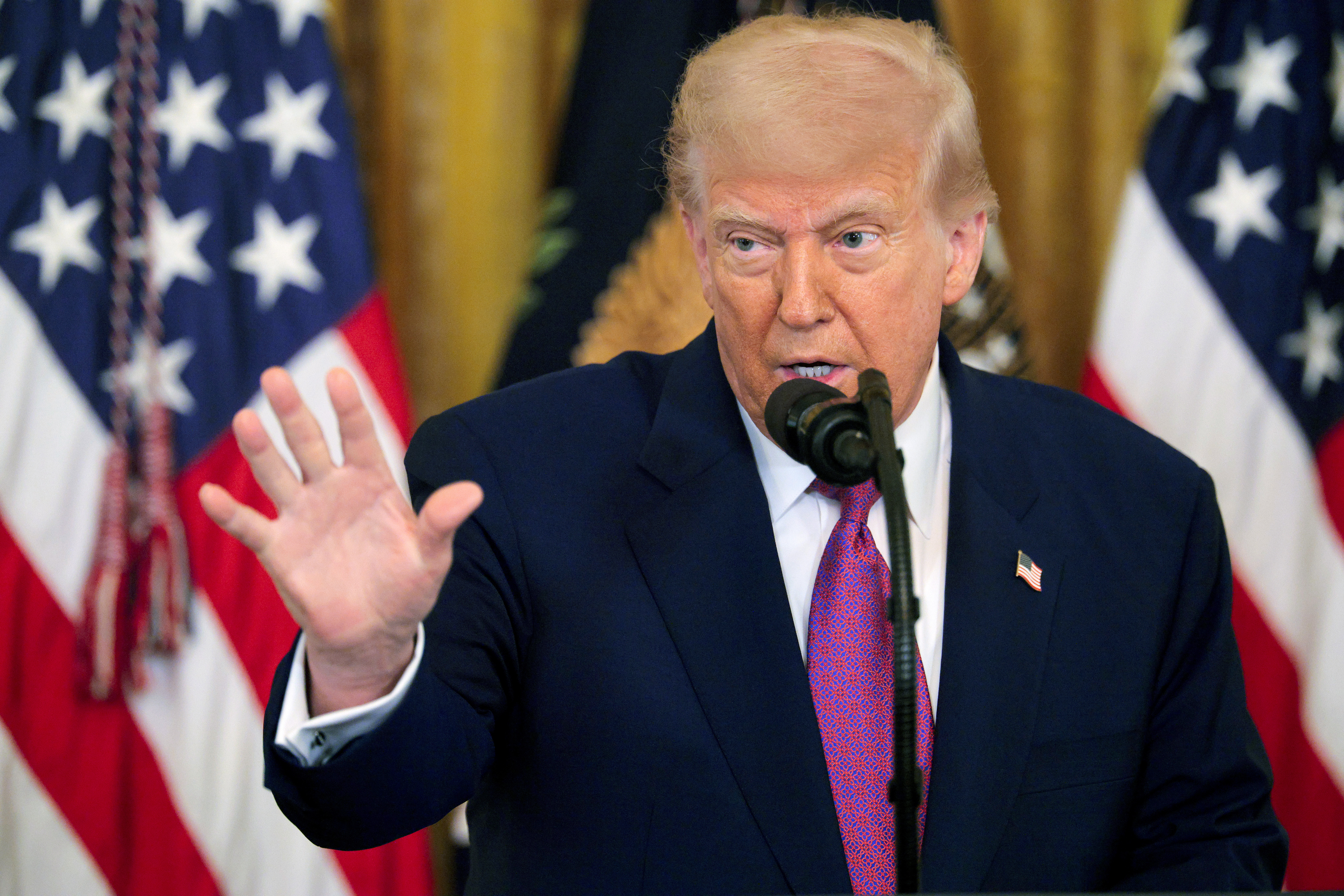
Just when relations between two of the world’s closest allies seemed to be stabilizing, a fresh diplomatic clash has reignited tensions.
A war of words erupted this week as former U.S. President Donald Trump accused Canada of launching a “blatant attack” on American interests—sparking a sharp response from Canadian Prime Minister Mark Carney.
No More Mr. Nice Guy
Known for their no-nonsense approaches, both Carney, 60, and Trump, 79, had once expressed mutual respect. Trump reportedly admired Carney’s background as a global financial leader. But that goodwill appears to be unraveling fast.
At the heart of the rift? A bold new tax policy.
Canada has unveiled a 3% digital services tax targeting tech giants like Google, Amazon, Meta, Uber, and Airbnb. What’s more, the tax is retroactive to 2022—potentially slapping U.S.-based companies with a staggering $2 billion in back taxes, due by the end of this month.
According to NBC News, the tax will apply to firms earning more than $14.6 million annually from Canadian users, placing some of Silicon Valley’s biggest players directly in the crosshairs.
As tensions mount, what started as a tax issue is quickly snowballing into a broader geopolitical dispute—with two heavyweight leaders trading increasingly pointed blows.

Unsurprisingly, former President Donald Trump didn’t hold back.
In a fiery June 27 post on Truth Social, Trump blasted Canada’s move as a direct assault on American interests:
“We have just been informed that Canada, a very difficult country to TRADE with… has just announced that they are putting a Digital Services Tax on our American Technology Companies, which is a direct and blatant attack on our Country.”
Accusing Canada of mimicking the European Union’s taxation model, Trump declared an immediate halt to all trade discussions:
“Based on this egregious Tax, we are hereby terminating ALL discussions on Trade with Canada, effective immediately.”
He ended his message with a stark warning:
“We will let Canada know the Tariff that they will be paying… within the next seven day period.”
A Chilling Shift in North American Trade
Trump’s explosive remarks mark a significant escalation—and a possible trade freeze with one of America’s largest partners. In 2024, U.S.-Canada trade hit a staggering $762 billion, according to the U.S. Trade Representative.
When pressed about Trump’s threat, Canadian Prime Minister Mark Carney stayed composed, offering a measured response:
“We’ll continue to conduct these complex negotiations in the best interests of Canadians.”
But Trump wasn’t finished.
Speaking to reporters outside the White House later that day, he issued a blunt warning:
“Economically, we have such power over Canada. We’d rather not use it. But they were foolish to do this. It’s not going to work out well for them.”
With diplomatic tension rising and billions on the line, the U.S.-Canada relationship may be headed into its most volatile chapter in years.

When asked whether talks with Canada could be revived, Trump was characteristically blunt:
“It doesn’t matter to me,” he said, adding that Canada could simply “remove the tax”—and predicting it eventually would.
The sharp escalation comes amid mounting pressure from U.S. lawmakers, who urged Trump to take swift action in response to what they’ve called an “unprecedented, retroactive tax” targeting American firms.
“Allowing Canada to proceed with this tax would send a dangerous signal to the rest of the world,” warned a coalition of lawmakers. “It would greenlight similar discriminatory cash grabs aimed at our companies, workers, and tax base.”
Not Just Canada—Europe in the Crosshairs
Trump also used the opportunity to blast the European Union for its own digital service tax initiatives, accusing European leaders of long-standing unfair treatment of the U.S.
“They have been unbelievably bad to us. Past presidents let it happen,” he said. “They’re being nice to me now because I get it. I know the system. We hold the cards—and we’re not afraid to use them.”
But the gloves really came off when Trump took direct aim at Europe’s intentions:
“They’re nasty people, and I don’t want them affecting U.S. companies. If anyone is going to fine or penalize our businesses, it’s going to be us—not them.”
With trade tensions flaring on two fronts—north across the border and across the Atlantic—the U.S. may be on the brink of a broader economic standoff, as Trump reasserts his combative “America First” stance on global trade.

When it comes to the escalating tax dispute between the U.S. and Canada, it appears Donald Trump has drawn first blood.
Just days after his fiery Truth Social tirade and mounting pressure from Washington, the standoff took a dramatic turn. A high-stakes phone call between Trump and Canadian Prime Minister Mark Carney late Sunday night appears to have tipped the scales.
That same evening, Ottawa stunned observers by announcing a retreat from its controversial digital services tax—just 24 hours before the first payments were due.
In a carefully worded statement, Carney framed the move as a strategic pause:
“Today’s announcement will support a resumption of negotiations toward the July 21, 2025, timeline set out at this month’s G7 Leaders’ Summit in Kananaskis,” the Prime Minister said.
A Tactical Retreat or Temporary Truce?
Though positioned as a gesture of good faith, the reversal marks a significant concession from Canada—and a clear political win for Trump. With trade negotiations now back on the table, both leaders face intense scrutiny over what comes next.
One thing is clear: the battle over digital taxation may be cooling for now, but the broader power struggle between allies is far from over.